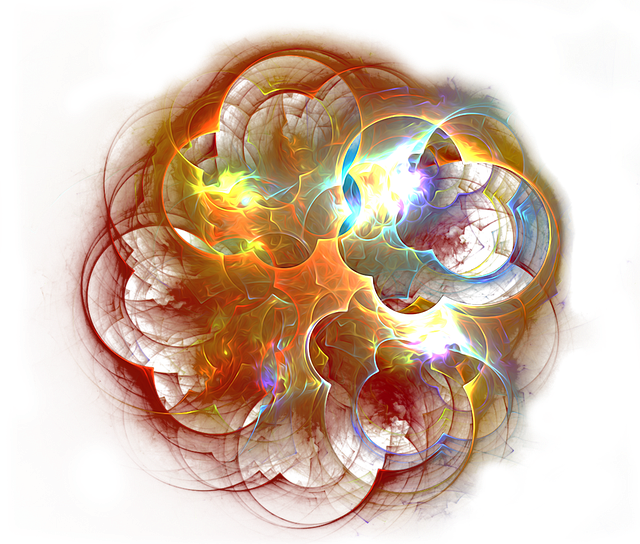
The placebo effect, a phenomenon where anticipation of treatment leads to perceived pain relief, has long been attributed to dopamine, the brain's reward chemical. However, a recent study, published in the prestigious journal Nature Medicine, suggests that dopamine might not be the central player in this complex interplay of mind and body. Researchers from the University Hospital Essen in Germany delved into the nuanced relationship between expectations, pain perception, and the intricate web of neurochemicals that govern our experience of pain. Their findings challenge the traditional view of dopamine's role in the placebo effect and offer a more nuanced perspective on this enigmatic phenomenon.
For decades, scientists have explored the intricate workings of the placebo effect, recognizing its profound influence on our experience of pain. Early research focused on dopamine, assuming its role as the primary driver of the placebo response, due to its association with reward and pleasure. It was believed that anticipating pain relief, similar to anticipating a reward, triggered the release of dopamine, thereby reducing the perceived intensity of pain. This perspective, however, has begun to evolve as scientists delve deeper into the intricacies of pain perception and the multifaceted nature of the placebo response.
The Placebo Effect: A Powerful Illusion
The placebo effect is a remarkable phenomenon that highlights the potent influence of the mind on our physical experiences. Imagine a patient suffering from chronic pain. They receive a seemingly effective treatment, unaware that it's simply a sugar pill. Yet, they report feeling a marked reduction in their pain. This is the essence of the placebo effect: the power of belief to shape our physical reality.
A Tapestry of Factors
While the placebo effect has been observed in various medical contexts, its underlying mechanisms remain a subject of intense investigation. Beyond dopamine, a multitude of factors contribute to this complex phenomenon. Expectation, conditioning, and cognitive processes all play significant roles in shaping our perception of pain. For example, a patient who believes in the efficacy of a treatment is more likely to experience a positive outcome, regardless of the treatment's true nature. This underscores the importance of the mind-body connection and its potential to influence our physical experiences.
Dopamine: Not the Sole Player
The researchers at the University Hospital Essen challenged the conventional wisdom by studying the role of dopamine in the placebo effect. Their study, published in Nature Medicine, used a sophisticated approach that involved carefully tracking brain activity in participants while they underwent pain stimuli. They discovered that dopamine release was not directly responsible for the initial placebo effect, contrary to previous assumptions. Instead, they found that other neurotransmitters, such as serotonin, played a crucial role in mediating the initial pain reduction attributed to the placebo.
Serotonin's Role
The study's findings highlight the intricate interplay of neurochemicals in pain perception and the placebo effect. Serotonin, often associated with mood regulation, appears to be a key player in the initial stages of the placebo response. The researchers suggest that serotonin may help to modulate pain signals and dampen the perception of pain, even before the anticipated relief is experienced.
Think of it as a symphony of brain chemicals, where each neurotransmitter plays a distinct role in orchestrating the complex experience of pain and its relief. Dopamine, while not the primary driver, may still play a role in reinforcing the placebo effect over time. As we repeatedly experience positive outcomes associated with a particular treatment, dopamine may contribute to the strengthening of our belief in its efficacy, further amplifying the placebo response.
Unraveling the Mystery
The intricate relationship between expectations, pain perception, and brain chemistry is a captivating realm of scientific exploration. This recent study, while providing new insights, merely scratches the surface of this complex phenomenon. Further research is needed to fully understand the interplay of various neurotransmitters and brain regions that contribute to the placebo effect.
Implications for Treatment
The findings have significant implications for medical practice and the development of new treatments. By understanding the intricate workings of the placebo effect, healthcare professionals can better leverage its power to enhance patient outcomes. They can create a positive therapeutic environment, emphasizing the benefits of treatment, fostering patient trust and belief in the effectiveness of therapies. This, in turn, can contribute to a more comprehensive approach to pain management and treatment.
The Future of Placebo Research
The study highlights the importance of a multidisciplinary approach to understanding the placebo effect. Neuroscientists, psychologists, and clinicians must collaborate to unravel the complex interactions between the mind, body, and the brain's intricate neurochemical signaling pathways.
A Collaborative Effort
Further research is needed to explore the role of other neurotransmitters, such as endorphins and GABA, in the placebo response. Additionally, it is crucial to investigate the influence of individual factors, such as personality traits, belief systems, and previous experiences, on the efficacy of the placebo effect.
The Power of Belief
The placebo effect serves as a powerful reminder of the mind's extraordinary capacity to influence our physical reality. Our beliefs, expectations, and thoughts can have a profound impact on our well-being. By harnessing the power of the placebo effect, we can create a more optimistic and empowering approach to healing and well-being.
The next time you receive a treatment, remember the incredible potential of the placebo effect. Believe in the power of the treatment, trust in your healthcare provider, and embrace the mind-body connection. These simple acts of faith may contribute significantly to your overall well-being.
"The power of the placebo effect is not just a medical phenomenon; it's a powerful testament to the mind's ability to shape our reality." - Dr. Steven Novella
The placebo effect, a phenomenon that defies traditional scientific understanding, continues to fascinate and challenge us. It serves as a reminder of the intricate interplay between our thoughts, beliefs, and physical experiences. As research continues to unravel the mysteries of this remarkable phenomenon, we can learn to harness its power to improve our health and well-being.
Space for advertisement
SCIENCE
Oct 25, 2024
Dopamine Does Not Cause Placebo Effect, Study Finds
Learn how the placebo effect works and why dopamine might not be the key player.

